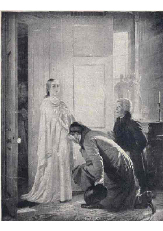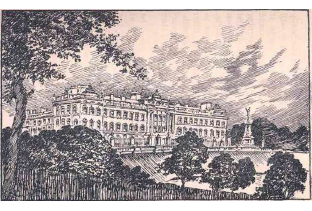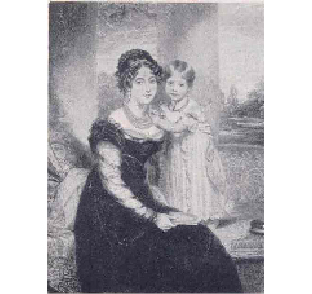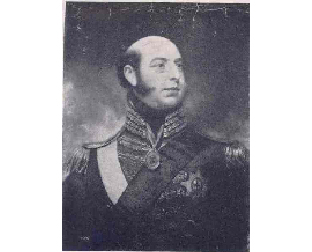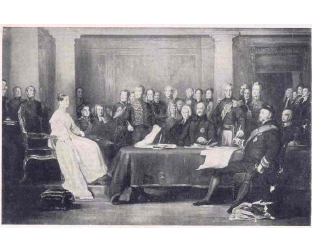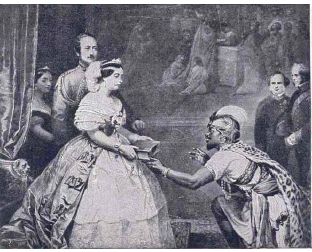Queen Victoria (14 page)
Authors: E. Gordon Browne
Tags: #victoria, #albert, #V&A, #disraeli, #gladstone, #royalty, #royal, #monarch, #monarchy, #history, #british, #empire, #colony, #colonial, #commonwealth, #kings, #queens, #prince, #balmoral

When one remembers that the Queen had to superintend the household arrangements of Buckingham Palace, Balmoral Castle, Osborne, and Windsor, and that the latter alone gave employment, in one way and another, to two thousand people, it can be realized that this was a tremendous undertaking in itself. Method and neatness, first instituted by the Prince Consort, were always insisted upon in place of the disorder and waste which had reigned supreme before the Queen became head of the household.
Before her life was saddened by the untimely loss of her husband the Queen was the leader of English society, and her influence was, as may be imagined, thoroughly wholesome and good. She was all her life a deeply religious woman, and though her observance of Sunday was strict, she never allowed it to become a day of penance. Her religion was ‘humane’ - indeed, her intense sympathy with all sorrow and suffering was one of her supreme virtues, and her early upbringing made her dislike all elaborate forms of ceremony during the service. When in the Highlands she always attended the simple little Presbyterian church, where the congregation was, for the most part, made up of the inhabitants of the neighbourhood.
It is this simplicity and ‘homeliness’ of the Queen which were so often misunderstood by those who could not realize how much she was at one with her people. The Queen was never more happy than when she was visiting some poor sufferer and comforting those in sorrow. Her memory for the little events which made up the lives and happiness of those far below her in social rank was amazing. She was a great and a truly democratic Queen. She gave the greater portion of her Jubilee present toward a fund to establish institutions to provide nurses for the sick poor.
During the latter years of her reign, when she was less and less to be seen at public functions and ceremonies, many complaints were made about her reputed neglect of royal duties. She felt the injustice of such statements very keenly and with good reason. No allowances were made for her poor health, for her years, for the family losses which left her every year more and more a lonely woman. Her duties, ever increasing in number and extent, left her no time, even if she had possessed the inclination, to take part in pomp and ceremony.
The outburst of loyalty and affection on the occasion of her two Jubilee celebrations proved that she still reigned supreme in the nation’s heart.
The Queen was not only a great monarch, but also a great statesman. Consider for a moment the many and bewildering changes which took place in her own and other countries during her reign. Our country was almost continually at war in some portion of the globe. The British Army fought side by side with the French against Russia in the Crimea, and against the rebels in the Indian Mutiny; two Boer wars were fought in South Africa in 1881, and 1899-1902. There were also lesser wars in China, Afghanistan, Abyssinia, Zululand and Egypt.
The Queen lived to see France change from a Monarchy to a Republic; to see Germany beat France to her knees and become a united Empire, thanks to the foresight of her great statesman Bismarck, and her great general von Moltke. During the same year (1870) the Italian army entered Rome, as soon as the French garrison had been withdrawn, and Italy became a united country under King Victor Emmanuel.
Despite the fact that the map of Europe was continually changing, England managed to keep clear of international strife, and this was in no small degree due to the personal influence of the Queen.
The England of her early years would be an absolutely foreign country to us, if by some magic touch we were to be transplanted back down the line of years. It was different in thought, feeling, and outlook. The extraordinary changes in the modes of travelling, by means of which numbers of people who had never even thought of any other country beside their own, were enabled to visit other lands, broke down, bit by bit, the barrier between the Continent and ourselves. England became less of an insular and more of a continental power.
The social changes were, as has been shown, all for good. Education became not the privilege of the few but the right of all who wished for it. Step by step the people gained in power and in the right to govern themselves. The idea of citizenship, of a patriotism which extended beyond the narrow limits of these isles, slowly took root and blossomed. Through all these manifold changes the Queen reigned, ever alert, and even in her last years taking the keenest interest in the growth of her mighty kingdom.
“The use of the Queen in a dignified capacity is incalculable,” declared Walter Bagehot in his famous essay on
The English Constitution
. He continues: “Without her in England, the present English Government would fail and pass away.” It is interesting to read the reasons which such a clear and distinguished thinker gives to explain the hold which the Monarchy retains upon the English nation as a whole.
Firstly: there is the Family, of which the Queen is the head; the Nation looks upon her as its mother, witness its enthusiasm at the marriage of the Prince of Wales.
Secondly: The Monarchy strengthens the Government with the strength of religion. It is the duty of a loyal citizen to obey his Queen; the oath of allegiance is no empty form. The Queen from her very position acts as a symbol of unity.
Thirdly: The Queen is the head of our society; she represents England in the eyes of foreign nations.
Fourthly: The Monarchy is the head of our morality. The example of Queen Victoria’s simple life has not been lost upon the nation. It is now quite a natural thing to expect and to find the domestic virtues personified in the ruling monarch, and this in spite of the fact that history has shown what temptations lie in the way of those possessed of the highest power in the state.
Shakespeare voiced the feeling of the people for the kingship in the words which he put into the mouth of Henry V:
Upon the king! let us our lives, our souls,
Our debts, our careful wives,
Our children, and our sins, lay on the king:
We must bear all.
O hard condition! twin-born with greatness,
Subject to the breath of every fool, whose sense
No more can feel but his own wringing!
What infinite heart’s ease must kings neglect,
That private men enjoy?
And what have kings that privates have not too,
Save ceremony, save general ceremony?
And lastly, the actual Government of the country may change but the Monarch remains, subject to no changes of Parliament, above and aloof from the strife of political parties, the steadying influence in times of transition.
The Sovereign has three rights: “The right to be consulted, the right to encourage, the right to warn.” A comparison of the reigns of the four Georges with the reign of Queen Victoria shows that it was only during the latter’s reign that the duties of the constitutional monarch were well and conscientiously performed. The Queen worked as well as her Ministers, and was their equal and often their superior in business capacity. To conclude: “The benefits of a good monarch are almost invaluable, but the evils of a bad monarch are almost irreparable.”
On the death of the Queen, Mr Arthur Balfour, speaking in the House of Commons, described his visit to Osborne at a time when the Royal Family was already in mourning. The Queen’s desk was still littered with papers, the inkstand still open and the pen laid beside it. “She passed away with her children and her children’s children to the third generation around her, beloved and cherished of all. She passed away without, I well believe, a single enemy in the world. Even those who loved not England loved her. She passed away not only knowing that she was, I had almost said, worshipped and reverenced by all her subjects, but that their feelings towards her had grown in depth and intensity with every year she was spared to rule over us.”

